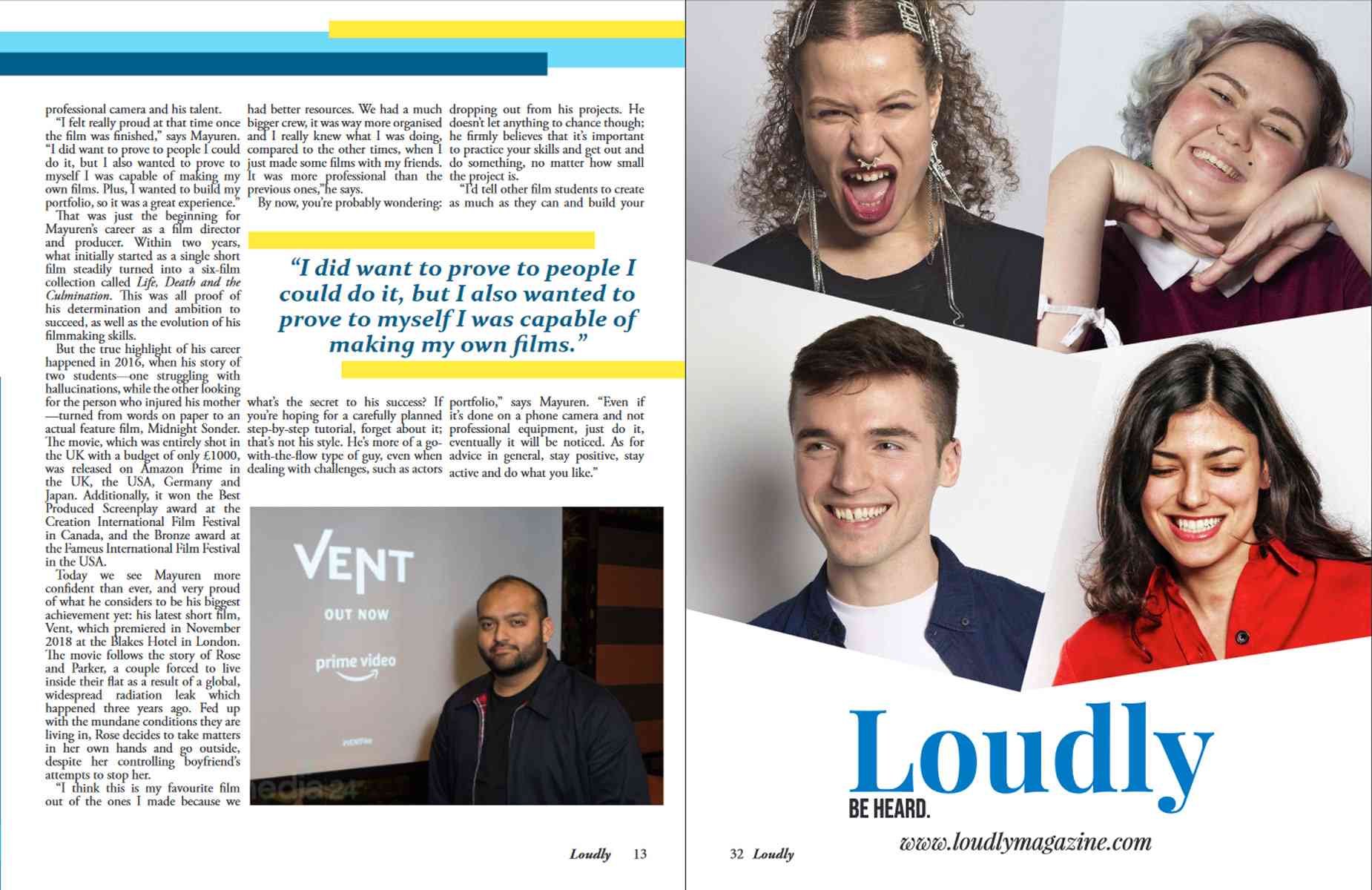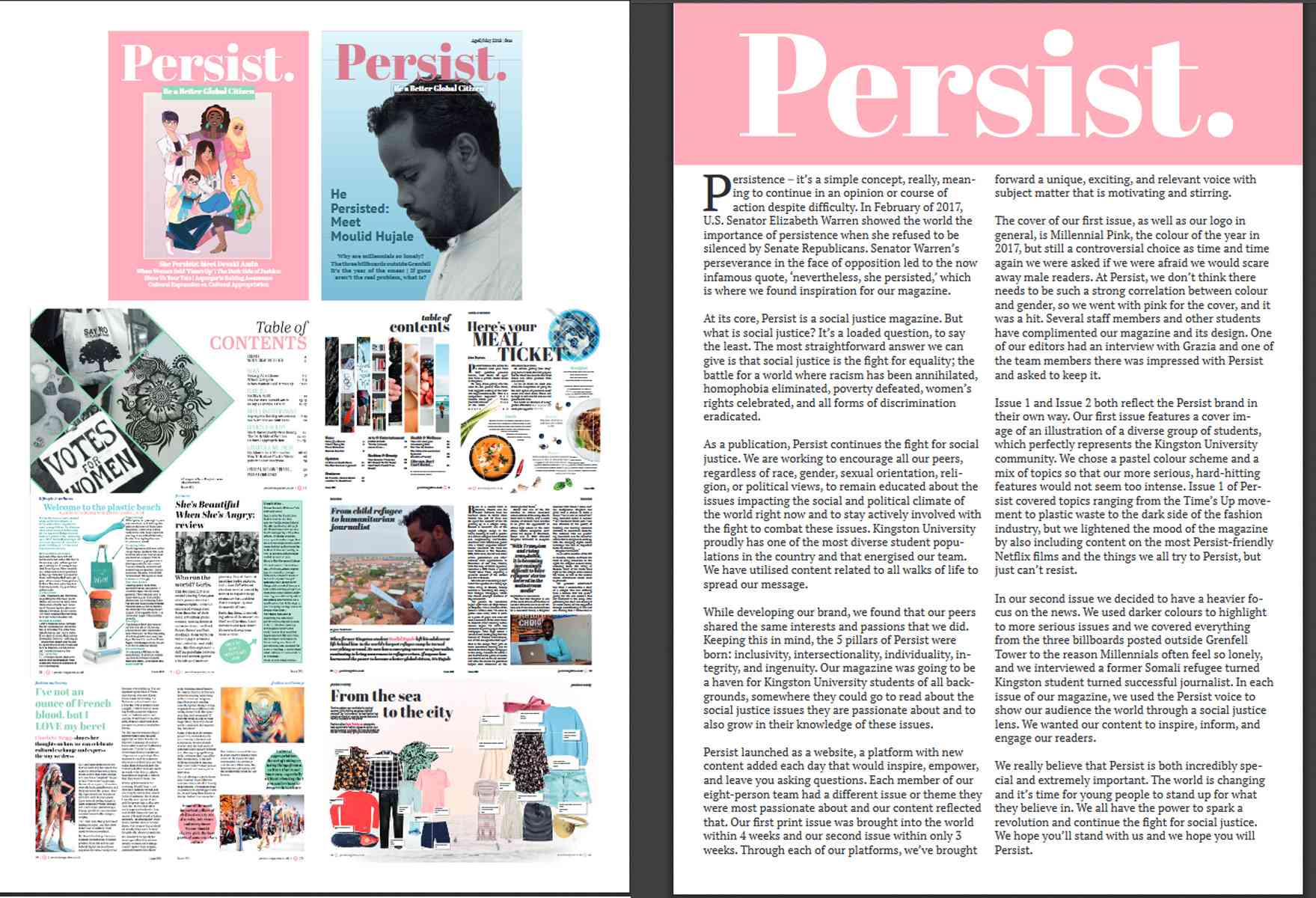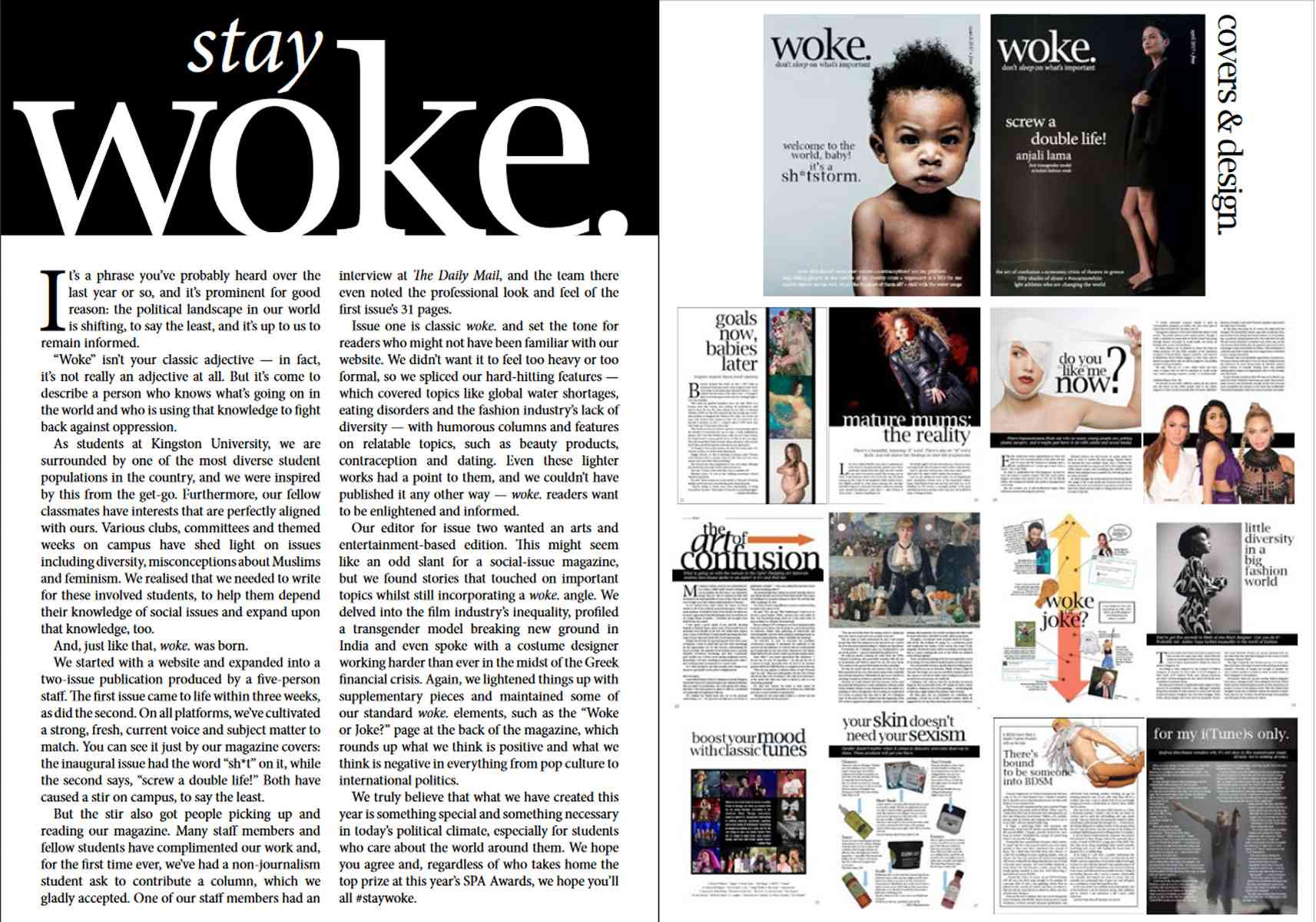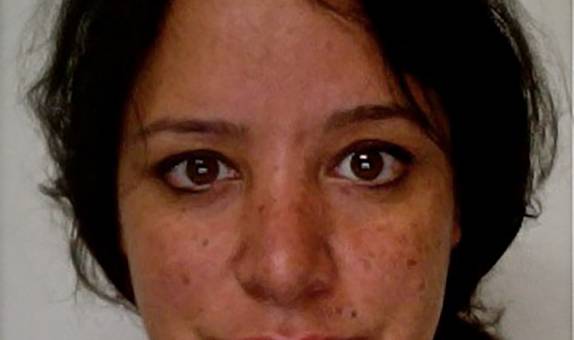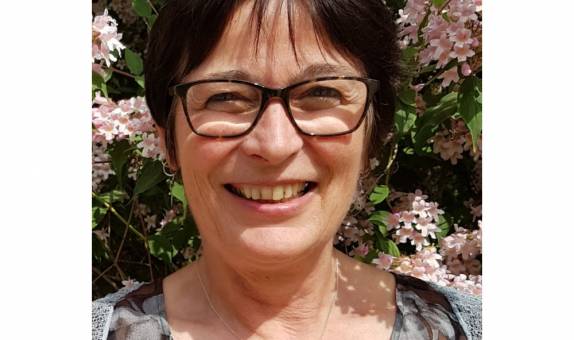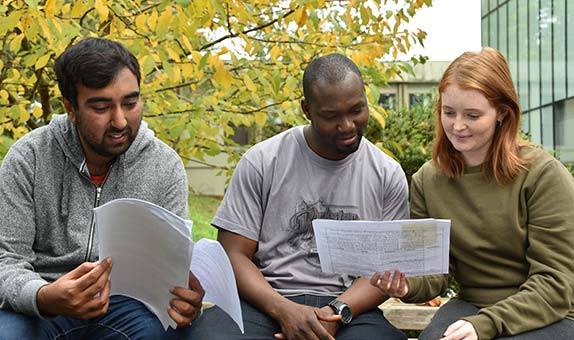Magazine Journalism MA
Why choose this course?
Do you aspire to work on magazines? This course will give you the best possible start on the road to success. It addresses subjects such as writing, sub-editing, magazine production, blogging and design techniques, research skills and how to generate lively, interactive content for the web.
This course features hands-on activities such as feature writing, interviewing, sub-editing, magazine production, blogging, and writing and uploading online copy.
In an editorial team, you will produce two magazines and a magazine website and undertake a placement on a published title.
You will also have the opportunity to study magazine design, production, fashion and sport or data journalism. Finally, you will carry out a 12,000- to 15,000-word dissertation or a related practical project.
Please follow our Journalism Twitter to see some of the great work we and our graduates are doing.
This course will not be open for September 2025 entry.
| Mode | Duration | Start date |
|---|---|---|
| Part time | 2 years |
| Main Location | Penrhyn Road |
Reasons to choose Kingston University
- Kingston has a successful partnership with magazine publisher Haymarket, which offers placements, joint projects and job opportunities.
- You will produce an online and print magazine. For the last three years it has been shortlisted for, and/or won, the national Student Publication Awards.
- Our popular design classes will cover professional training in both InDesign and Photoshop. You will produce video journalism and podcasts as well as having access to the new media lab at our Knights Park campus and the new library's dedicated magazines/journals area.
The Art School Experience
As part of Kingston School of Art, students on this course benefit from joining a creative community where collaborative working and critical practice are encouraged.
Our workshops and studios are open to all disciplines, enabling students and staff to work together, share ideas and explore multi-disciplinary making.

Experience and hands-on learning
Our tutors are practising journalists who share their wide range of experience. This course also features guest speakers from national magazines and newspapers in both print and online. Past speakers have included Rachel Rodriguez – social media producer at CNN International, Zing Tsjeng – UK editor of the feminist channel Broadly, Guardian feature writer, Simon Hattenstone and Jon Snow of Channel 4 News.
Work placements, leading to job offers, have been at GQ, Grazia, Hello! and Spindle online. We have a successful partnership with Haymarket Network – the award-winning customer publishing division of the largest private magazine publisher in the UK. This offers the opportunity to work on joint projects, which have included programmes for the London Olympics.
Award-winning journalism
In 2017 our MA Magazine Journalism students won a prestigious national Student Publication Award in the Best Newcomer magazine section for the Kingston University magazine, Woke (online). And in 2018 the student magazine Persist was shortlisted for the Best Design category. Persist (in 2018) and fellow student magazine Loudly (in 2019) were shortlisted for Best Magazine Design at the Student Publication Association Awards.
What you will study
Our Magazine Journalism MA prepares you to work in the magazine industry. It gets you ready for anything you might come across: from writing features for a women's weekly or putting together a news story for a trade publication, to making a video or building a brand. It offers detailed, hands-on grounding in core journalistic skills, including feature writing, news gathering and writing, design, production and media law. Context is provided through the study of the business of magazines, ethics and journalistic practices. You can choose to study shorthand as an optional extra.
You'll be expected to take five core modules, four of which are worth 30 credits each; the other one worth 60 credits. You can also choose an option module. Altogether you'll need to complete 180 credits.
You can also study shorthand in order to assist with your NCTJ exams.
Year 1
Optional placement year
You will be taught through a combination of lectures, seminars and practical workshops covering writing, interviewing, subediting, magazine production, blogging, and writing and uploading copy for the web. You will produce a magazine (print and online), and undertake at least one placement on a published title.
You will also write a 12–15,000-word dissertation or carry out a related practical project.
Core modules
Journalism in Context: Law, Ethics and the Industry
30 credits
This year-long module aims to provide students with a thorough understanding of the legal and regulatory structure within which journalists operate. In recent decades, the industry has changed significantly as it adapts to the opportunities and challenges of the internet age. You will be invited to examine and debate the direction and future of journalism, thinking about everything from legal restrictions on reporting to fake news to the public's perception of journalists.
As well as counting towards your MA, this module leads to the NCTJ's Essential Law and Ethics exams.
Creating Magazines: Content and Context
30 credits
This module aims to provide you with the practical skills necessary to work as successful journalists, underpinned by an understanding of the constraints and tensions inherent in magazine offices, and online operations developing in a changing industry. You will examine the structure of this fast-expanding sector, with a particular emphasis on the role played by freelance journalists and production staff in generating content.
You will have the opportunity to acquire the core skills for producing online and print publications which will include the use of social media/analytics/branding/research and interview techniques. You will be equipped with multimedia reporting, production and design skills in demand in the journalism industry and will be confident about telling stories through video and audio as well as the written word.
The module offers valuable opportunities for you to work together to produce and run your own group website, and magazine, developing your teamwork skills and experiencing the reality of different job roles in a multimedia operation. This classroom experience will provide a valuable introduction to the two-week work placement all students will be required to undertake as part of the module.
Feature Writing
30 credits
Whatever the type of magazine - from quality Sunday paper supplements to women's lifestyle monthlies - features dominate content. This module encourages students to look critically at feature writing in all its forms and to analyse exactly what makes a great feature. You will learn how to generate winning ideas, research those ideas thoroughly, and turn that research into eye-catching copy. You will also learn how to pitch ideas to publications, and be encouraged to pitch for real during the course.
MA Journalism Dissertation
60 credits
Students wishing to undertake a substantial piece of academic work can opt to take the dissertation module, which is carried out between May and September, after core teaching has finished. Once you have narrowed down your area of interest, you will be given a supervisor who will work individually with you to help you develop your ideas, frame a hypothesis and conduct appropriate primary and secondary research. The MA dissertation is a good bridge for any students wishing to pursue further study, at PhD level or beyond.
Practical Journalism Project
60 credits
Students who wish to go straight into the workplace can opt to do a Practical Journalism Project module while they work, in lieu of a dissertation. This module includes a piece of academic research as well as a portfolio of journalism produced as a working journalist. You will also be asked to reflect on your practice, considering how you can learn from your experience and develop as a journalist. This module takes place between May and September, after core teaching has finished.
Not for credit
Shorthand (Postgraduate)
0 credits
Students on the MA Journalism course may study Teeline shorthand. Shorthand is an extremely useful skill for journalists, and one prized by employers: it generates trust with interviewees and increases the speed and efficiency of reporting. You will be taught Teeline, which uses written outlines derived from consonants, by a teacher of longstanding experience; the aim is to reach a speed of 100 words per minute (wpm) by the end of the course.
Shorthand exams at 60, 80 and 100 wpm, count towards the NCTJ diploma.
Option module
Journalism Specialism
30 credits
This highly practical module allows students to explore in depth, and actively engage with, a range of journalism specialisms which could include: sports journalism, fashion journalism, foreign correspondence, arts and culture journalism, social affairs or visual journalism.
Students will develop the researching, writing, reporting and digital skills they acquired through prior learning to produce professional copy and other outputs pertinent to each specialism, such as social media, video and visualisations. They will apply their newly-gained specialist knowledge and acquired skills to the production of a portfolio of cutting-edge specialist journalism.
The practices of each area of specialist journalism will be placed in a context throughout the module. Through a series of lectures and in-class discussions students will gain insight into each specialism and how it works. They will acquire an appreciation of the historical, cultural, global and economic issues which specialist journalists must understand. The module prepares students to pursue jobs within specialist beats upon graduation.
Many postgraduate courses at Kingston University allow students to do a 12-month work placement as part of their course. The responsibility for finding the work placement is with the student; we cannot guarantee the work placement, just the opportunity to undertake it. As the work placement is an assessed part of the course, it is covered by a student's Student Route visa.
Please note
Optional modules only run if there is enough demand. If we have an insufficient number of students interested in an optional module, that module will not be offered for this course.
Events and lectures
There are always interesting activities taking place at Kingston and exciting opportunities to take advantage of. The Journalism department holds lunchtime lectures every Wednesday, delivered by accomplished professionals in their fields. Recent guest speakers include:
- Rachel Rodriguez – social media producer at CNN International.
- Zing Tsjeng – UK editor of feminist channel Broadly.
- Bruno Bayley – editor of Vice magazine UK, a youth-oriented publication with edge.
- Richard James – UK news editor of BuzzFeed, the hugely popular news and entertainment site with a global audience of some 150 million. Richard, formerly deputy online editor at Metro, talked about how to create news people want to engage with and share.
- David Lindsell – web editor for 10 Newsquest local websites including the Surrey Comet and the Richmond and Twickenham Times. David examined whether the internet is killing off local/regional journalism as we know it and discussed the tools journalists need in a digital newsroom.
- Hannah Gale – freelance fashion and lifestyle journalist and blogger, who has worked online for Metro, LOOK, Marie Claire and InStyle. Hannah, a Kingston journalism graduate, spoke about how important it is for journalists to develop their own brand.
- Michelle Hather – deputy editor at Good Housekeeping, having previously worked at Best magazine, the Liverpool Daily Post and the Sunday People. Michelle suggested ways to make your mark in journalism – especially magazine journalism – including some of the weird things you get to do along the way.
- Ollie Gillman – a Kingston journalism graduate, Ollie earned a coveted place on the Daily Mail trainee programme and has worked around the country covering local and national issues as well as sport and entertainment.
- William Fairman – VICE's supervising producer. VICE is an international news organisation "created by and for a connected generation". It prides itself on covering under-reported stories. William talked about online documentary making, VICE's original editorial style and the organisation's evolution from magazine to digital first media publisher.
- Vanessa Baffoe – Vanessa helped launch LondonLive, the local news channel for London set up by the Evening Standard. She is a video maker, a TV presenter and a producer who previously worked for ITV's Tyne Tees and Border news. Vanessa was one of Kingston journalism's first graduates.
- Simon Hattenstone – award-winning Guardian writer Simon Hattenstone spoke on the craft of feature writing and interviewing.
- John Crowley – digital editor at the Wall Street Journal. John looked at technological innovation in storytelling and the presentation of news.
- Bill Schomberg – chief economics correspondent at Reuters. Bill has worked on some of the biggest stories in some of the world's biggest cities, covering financial, general and sports news from Brussels to Brasilia.
- Mukul Devichand – works on BBC trending looking at social media trending stories.
- Adrian Warner – ex-BBC, Evening Standard and Reuters on multi-platform reporting and sports news reporting.
- James Jones – BBC undercover reporter. James talked about getting into North Korea and working in Ukraine.
Entry requirements
Teaching and assessment
You will be taught and assessed through working on articles, features, news, portfolios, case studies, presentations, essays, dissertation and work-based learning.
Who teaches this course?
This course is delivered by Kingston School of Art and you'll be based at Penrhyn Road campus for most of your teaching. It is a lively environment in which to further your studies and career, thanks to the wide range of courses and the combination of academics and practitioners.
The University provides:
- courses designed in collaboration with industry professionals – keeping you up to date with the latest developments;
- established connections with the London arts and media scene – with a range of guest speakers, professors and lecturers visiting the University; and
- teaching staff who are active journalists, authors and writers.
Postgraduate students may also contribute to the teaching of seminars under the supervision of the module leader.
Fees for this course
Additional costs
Depending on the programme of study, there may be extra costs that are not covered by tuition fees which students will need to consider when planning their studies. Tuition fees cover the cost of your teaching, assessment and operating University facilities such as the library, access to shared IT equipment and other support services. Accommodation and living costs are not included in our fees.
Where a course has additional expenses, we make every effort to highlight them. These may include optional field trips, materials (e.g. art, design, engineering), security checks such as DBS, uniforms, specialist clothing or professional memberships.
Facilities
The journalism department has a dedicated newsroom, fully equipped with dual-booting iMacs, professional newswires from Rex Images and the Press Association, 24-hour news channels and industry standard software such as Adobe InDesign, Adobe Photoshop and Adobe Premiere Pro.
You will have access to a modern environment with the latest equipment, including the Learning Resource Centre. This offers:
- subject libraries, plus a free inter-library loan scheme to other libraries in the Greater London area – the large journalism section at Kingston features a range of specialist books, periodicals, journals, videos and DVDs
- online database subscriptions
- a growing selection of resource materials – including online archives of national newspapers going back 30 years and microfiche cuttings dating back a century
Resources in London
From Kingston, it's just a 30-minute train journey to central London. Here you will find the biggest concentration of press and publishing in the UK. This gives you the opportunity to undertake work experience in high-profile media environments.
What our students and graduates say
After you graduate
Our Magazine Journalism MA prepares you to work in the magazine industry. Our alumni records show that at least 85 per cent of our graduates work in the industry or allied fields. They have taken work placements, and received subsequent job offers at GQ, Grazia, The Lawyer and New Internationalist magazine.
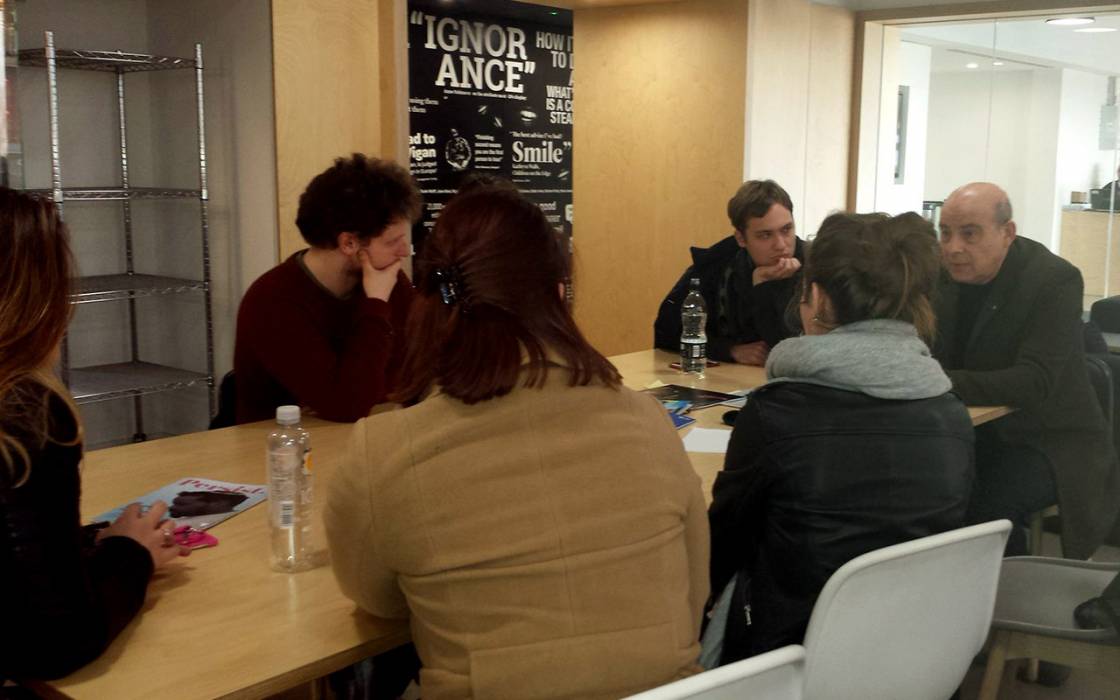
Links with business and industry
You will benefit from guest speakers from national magazines and newspapers in both print and online. Past speakers have included:
- Rachel Rodriguez – social media producer at CNN International
- Zing Tsjeng – UK editor of feminist channel, Broadly
- Simon Hattenstone – Guardian feature writer
- Jon Snow – Channel 4 News
You'll also have chance to undertake work placements on professional publications which have previously included:
- Marie Claire
- Cosmopolitan
- Press Gazette
- Publishing Business
- Travel Weekly
- Reed Business Information
- Surrey Life
- SW Magazine
- Wanderlust
- Haymarket projects
The department has a successful partnership with Haymarket Network, the customer publishing division of Haymarket Publishing. Haymarket runs an annual scheme for students in which you can apply to take part in specific projects. In the past these have involved:
- developing a magazine for the British youth market
- producing a magazine to launch a band for Universal Music
- conceiving a website for travellers in association with The Rough Guides
Participants can compete for Haymarket Fellowships, which come with a substantial cash prize. Several students who have worked on the projects have secured jobs at Haymarket after graduation.
Course changes and regulations
The information on this page reflects the currently intended course structure and module details. To improve your student experience and the quality of your degree, we may review and change the material information of this course. Course changes explained.
Programme Specifications for the course are published ahead of each academic year.
Regulations governing this course can be found on our website.




